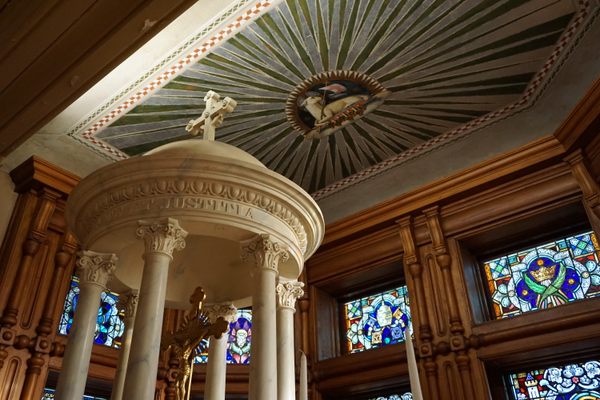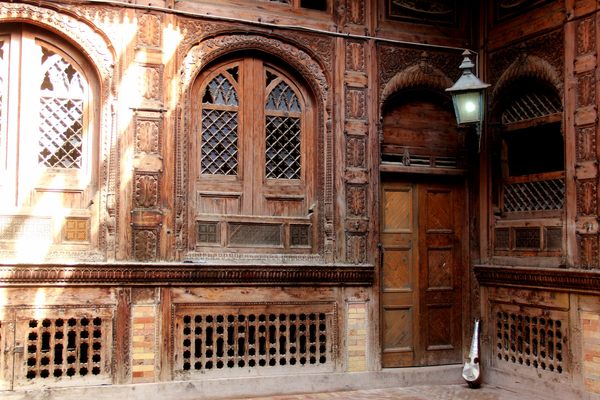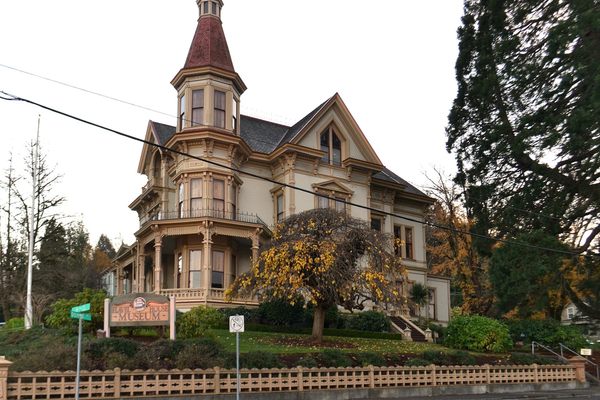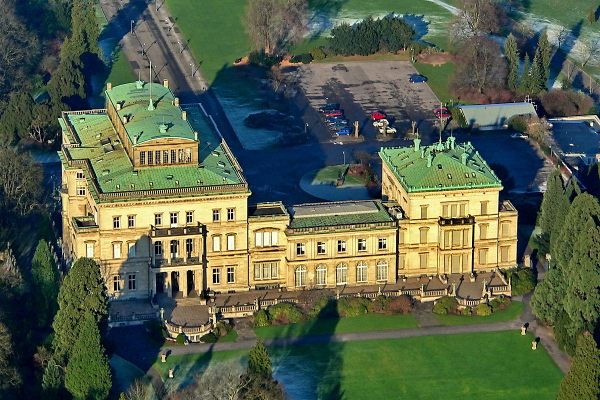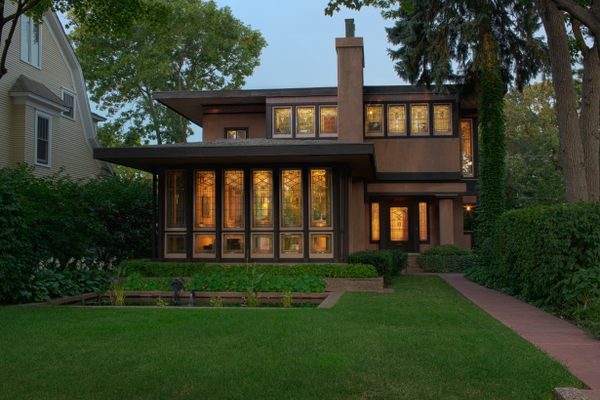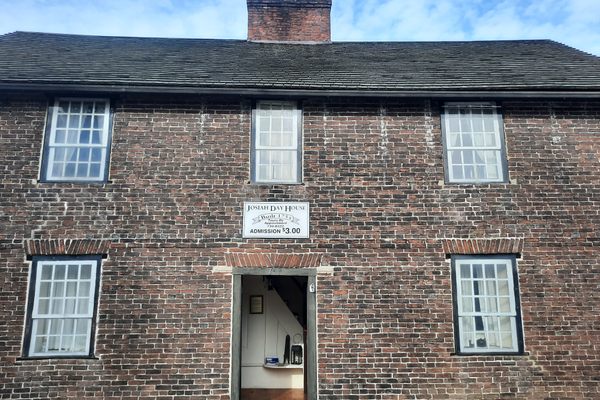About
In Galveston, a grand family mansion turned Catholic bishop’s residence, provides an evocative glimpse into luxurious living around the turn of the 20th century.
Among the most important national buildings according to the American Institute of Architects, Bishop's Palace is the historical highlight of Galveston’s East End District—a significantly large collection of 19th-century architecture in the U.S.
Constructed from 1887 to 1892, the Bishop's Palace’s masterful architectural design blends Romanesque, Gothic, and Victorian influences and is packed with lavish antique furnishings. Both are a testament to the wealth and worldliness of Galveston’s "golden area" as a busy U.S. port city.
The building was originally a family residence for railroad magnate and politician Walter Gresham, his wife and their nine children. He spared no expense in building his family’s dream home. Costing $250,000 at the time (equivalent to $10 million today), Gresham House was made entirely from steel, stone, and brick. The house was one of only a few buildings which survived the 1900 hurricane in Galveston (the deadliest U.S. natural disaster to date) and even sheltered dozens of those affected during the catastrophe.
The mansion served as the Gresham family's private residence for 30 years until the Galveston Roman Catholic Diocese purchased it in 1923 as a bishop’s residence. Today, Bishop’s Palace is a history museum operated by the Galveston Historical Foundation to provide a glimpse into what life was like during the early 1900s.
Restored to replicate how it looked in the Gresham years, Bishop’s Palace is packed with intricate design elements and decor that are a wonder for the eye—not to mention the imagination.
Carved onto Tudor arches, animals and mythical creatures like lions, dragons and griffins welcome guests to the premises. Then, a majestic rotunda entrance hall, straddled by marble columns, opens up to an impressive, 40-foot-tall octagonal mahogany stairwell, framed in stained glass windows on all sides, and an octagonal skylight.
More features include many elaborate fireplaces, but especially one made of pure silver, as well as the stained-glass windows. Intricate hand carvings throughout the interior comprise rare woods and mosaic tiling, while bronze furnishings and gigantic chandeliers glint across the high ceilings and the multitudes of stained glass spaced throughout.
Explore the mansion and its dizzying amount of rooms and spaces, from the Bishop’s Bedroom (originally a bedroom with a private balcony for one of Gresham’s daughters) and the Chapel (another bedroom converted with an altar, prayer kneelers, and religious motifs).
In more recent times, the discovery of matriarch Josephine Gresham’s basement “grotto”, covered in wall images she painted herself, has led to a series of "Basement to Attic" guided tours into the more hidden nooks and crannies of the gargantuan dwelling.
Related Tags
Know Before You Go
Tours of Bishop’s Palace are self-guided. A portion of each admission supports the upkeep of the property.
Published
September 24, 2024
Sources
- https://www.galvestonhistory.org/sites/1892-bishops-palace
- https://en.wikipedia.org/wiki/Bishop%27s_Palace_(Galveston,_Texas)
- https://www.lonelyplanet.com/usa/texas/galveston/attractions/bishop-s-palace/a/poi-sig/1185722/1315492
- https://www.galveston.com/whattodo/arts/museums/bishopspalace/
- https://sweptawaytoday.com/2017/04/25/1892-bishops-palace/
- https://www.humanitiestexas.org/news/articles/bishops-palace-galveston-treasure


